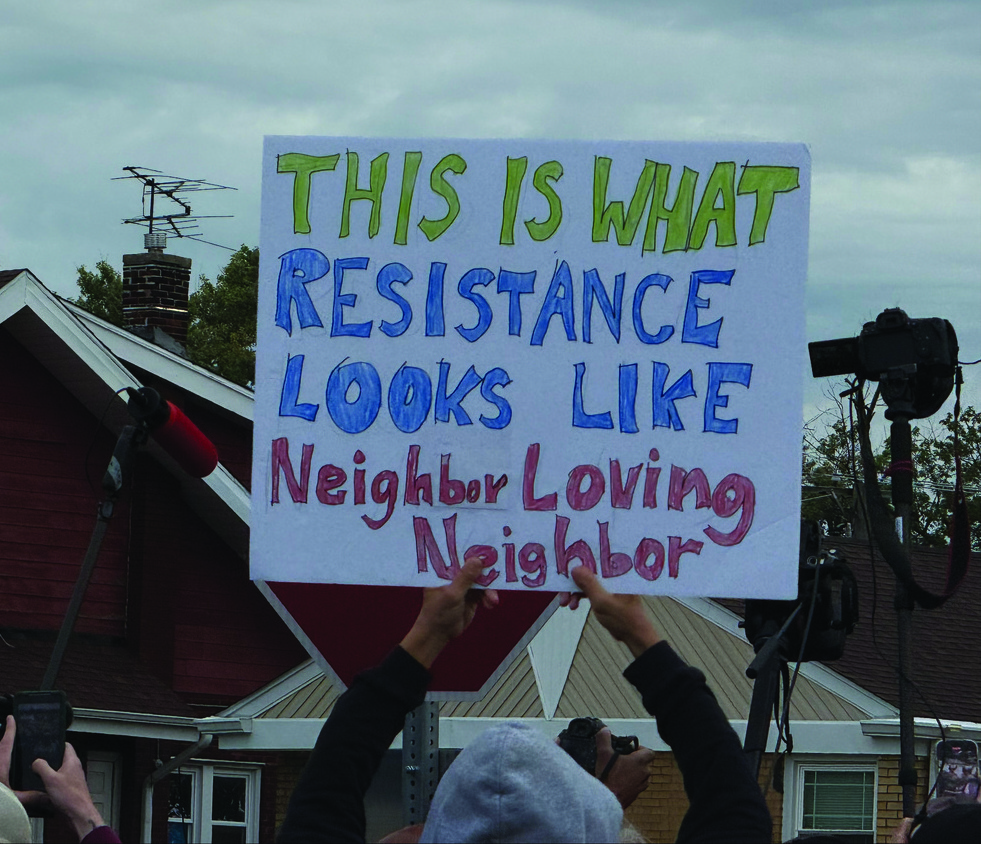Movement in the City, Melrose Park, Suffers Fire
A fire briefly burned in Movement in the City’s (new faith community) Melrose Park campus this morning. Firefighters, who rushed from a nearby station, quickly extinguished the…
We are living in times of significant challenges, difficulties, and division. Across our nation, many people, especially the most vulnerable, are living in fear, facing hostility, discrimination, and economic hardship. Families struggle to keep their homes, put food on the table, and find stability. At the same time, a culture of individualism tempts us to retreat into silence rather than risk standing in solidarity with those who suffer.
Jesus calls us to live in deep connection with God and with one another, to move beyond fear and isolation and to step courageously into community. To live in connection with God means to trust that God’s justice, mercy, and love are stronger than the hatred and division that surround us. To live in connection means rejecting the false belief that our lives are separate or that someone else’s suffering does not concern us. When one member of the body of Christ is hurting, we are all called to feel that pain, respond with compassion and stand together in hope.

Living in connection does not erase the challenges we face, but it transforms how we face them. When we listen to the stories of immigrant siblings, we make space for compassion to grow stronger than prejudice. When we pray together, break bread together, and walk alongside each other, we declare that no one is alone and that God’s love is greater than all forces of division.
Our DNA as Methodists is connectionalism, so we must take this call seriously. It is not enough to pray within our walls; we must act together beyond them. Congregations live in connection by joining in worship, sharing meals, and praying side by side. Churches with more financial stability can walk alongside those with fewer resources, offering direct support for immigrant families or partnering to share food pantries and organize public vigils against injustice. These concrete acts proclaim that Christ’s body is not divided.
On an individual level, people of faith can live in connection by visiting a struggling neighbor, standing with a coworker who feels threatened, or simply listening with compassion to those who carry heavy burdens. Each small act of courage pushes back against the culture of indifference and builds a network of hope.
Connection between churches is not optional; it is the witness the world desperately needs. Now is the time to reject individualism and choose community. Now is the time to speak up, to stand with our neighbors in need, and to embody God’s justice and mercy in public. Connection is not just a comfort; it is the way of the cross and the way of resurrection hope.
A fire briefly burned in Movement in the City’s (new faith community) Melrose Park campus this morning. Firefighters, who rushed from a nearby station, quickly extinguished the…
Christ United Methodist Church in Rockford suffered a fire on Monday night, Feb. 23, that started in its organ. Thanks to the fast response of the few in the building at the time, d…
For nearly a century, housing has been part of Humboldt Park United Methodist Church’s ministry. Now, through a partnership with LUCHA, the church’s 98-year-old building is being tran…
Reflecting on scripture and Building Beloved Community, Bishop Dan Schwerin contrasts God’s love-shaped authority with the fear-driven authoritarianism se…